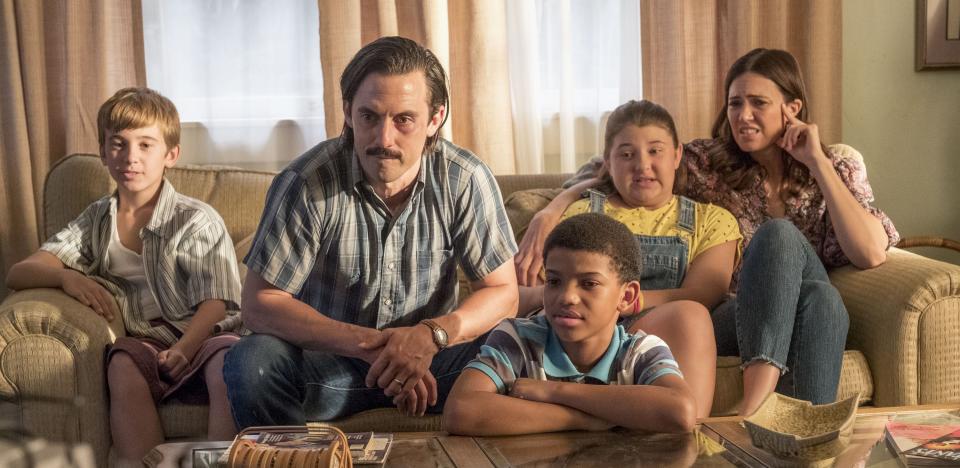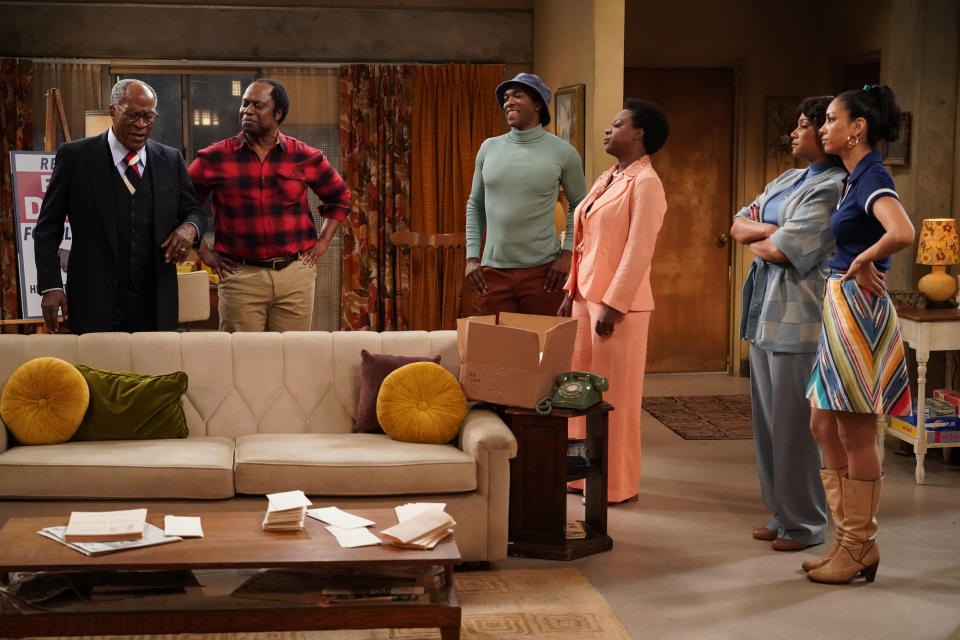Writers’ Strike Could Accelerate Scripted Programming’s Decline On Linear Television

The broadcast business has been at a crossroads for the past couple of years, putting emphasis on live programming, sports and unscripted fare as scripted series increasingly are consumed digitally on-demand. A potential WGA strike would accelerate the process, according to a number of industry sources I spoke with over the past several weeks.

Ron Batzdorff/NBC
More from Deadline
WGA Leaders Say AMPTP Refused To Bargain On Guild's Core Issues
What Went Wrong? Writers & Studios Reveal What They Couldn't (And Could) Agree On As Strike Is Set
The last big broadcast hit, This Is Us, premiered in 2016, and there have been just a handful of solid new scripted entries since, including CBS’ Young Sheldon and ABC’s The Good Doctor. The biggest, loudest new broadcast show of the past year has been Fox’s reality breakout The Masked Singer, the highest-rated entertainment network program. Fox finished as fall’s No.1 broadcast network among adults 18-49 for the first time in a decade bolstered by The Masked Singer, Thursday Night Football, the World Series and WWE Smackdown. With more than 40% of Fox’s schedule devoted to sports/reality program, we may be taking a glimpse at what the typical programming mix on the Big 4 could look like in the near future.

CBS
It may be why there has been no rush among the Big 4 broadcast networks to hand out early renewals to their scripted series so they could bank scripts for next season ahead of a potential writers work stoppage in May. There is some script stockpiling going on at the major studios but it appears to be limited. During the 2007-08 writers strike, the broadcast networks relied on scripted imports and reality series like American Idol, Survivor, Big Brother, The Amazing Race, Dancing With the Stars and The Apprentice to carry them through the weeks of no fresh U.S. studio-made scripted programming. The move helped unscripted programming’s comeback in the early 2000s take hold and cement the genre’s role as a vital element of the broadcast schedule’s mix.
With streamers already supplanting broadcasters as the top destination for original scripted programming, a 2020 writers strike may be the last nail in the coffin of scripted series’ dominance on linear TV.
Broadcast executives already are looking at unscripted series as a bottom line-friendly alternative to scripted shows and a way for networks to retain the majority of their revenue at a much, much lower price point. There are no exact figures, but according to a rough estimate that is being floated around, reality shows could get about 80% of the ratings of scripted series at a third of the cost.
Unscripted fare’s appeal is only going to grow as escalating prices for acting and showrunner talent are pushing up costs of scripted series. For instance, the strong pull of streaming and premium cable has made top actors reluctant to do broadcast shows, with studios having to shell out more than $250,000 an episode to land in-demand names.

ABC
Scripted series’ big advantage over unscripted used to be that they repeat well while most unscripted ones don’t. That is no longer the case for scripted series, prompting broadcasters to try and avoid reruns during the regular season by scheduling more originals. Meanwhile, there are some unscripted shows that repeat pretty well, like ABC’s Shark Tank or USA Network’s Chrisley Knows Best.
At TCA last month, FX Chairman John Landgraf spoke of the basic cable business — and the linear TV business as a whole — reaching maturity, noting that from now on, the original scripted slate on the linear FX/FXX networks will remain the same in size, and new series will be added when there is a need to replace departing ones. Scripted shows developed and produced in excess of that will go to streaming via FX on Hulu.
The USA Network, TNT and TBS have all scaled back on original scripted series in light of declining linear ratings, ramping up their unscripted slates. Neither network is expected to ever go back to the heyday of the early 2010s when they had 9-10 original scripted series on the air, instead looking at a portfolio of live sports, reality and a handful of scripted originals a year.
With scripted series already facing challenging economics, in case there is a WGA work stoppage, the network scripted business could take a hit that that it may never recover from, industry veterans agree.

CBS
Facing a possible scripted series shortage if there is a strike, the major broadcast nets are ramping up — and holding back — unscripted fare. It’s probably not a coincidence that of its midseason replacements, CBS has scheduled all but one, unscripted stalwart The Amazing Race, which could easily be deployed in the fall to fill a time slot in case of a writers stoppage.
At the January TCA, the majority of ABC’s programming announcements — at least some of them for next season — were in the reality space, including The Bachelor: Listen to Your Heart, a new installment in the network’s popular reality franchise; classic TV game show Supermarket Sweep, a new incarnation hosted and executive produced by Leslie Jones; and a return of Who Wants to Be a Millionaire with Jimmy Kimmel.
In making the announcements, ABC Entertainment president Karey Burke said that the network would be prioritizing live and unscripted programming. “Our strategy going forward is to present one live or big tentpole event every month,” she said, highlighting the primetime Jeopardy! specials and a live episode of The Conners.

ABC
The network has the Live In Front of a Studio Audience franchise, which would work during a writers strike as it relies on existing scripts from the Norman Lear vault of sitcom classics. NBC and Fox also have announced a number of reality pickups and renewals over the last few weeks.
It is not surprising that the only broadcast network with all-scripted in-season lineup, the CW, has made virtually all of its renewals for next season, bringing back 13 series, along with two new scripted series orders, for Superman & Lois and Walker.
The CW is not as impacted by the linear ratings declines for scripted series as it is built on a different business model. It serves as a domestic linear outlet for its two co-owners, Warner Bros. and CBS, building assets for them that they can sell internationally and off-network. Appealing to younger audiences, the CW’s programming is very popular on digital, helping the CW make up some of the ad revenue losses from decreasing linear ratings by ad-supported in-season streaming, while the producing studios can cash in on the series’ streaming library rights.

Colleen Hayes/NBC
Ownership will likely be key for the surviving scripted series on linear networks. NBC touts the digital performance of shows like The Good Place and Brooklyn Nine-Nine, which can still be profitable for the company overall despite modest linear ratings on the broadcast network because they do so well on streaming during their network run and create valuable library assets for the NBCU-owned studio to be exploited on streaming platforms for years to come.
The same goes for CBS’ brand-name procedurals from the sister studio that continue to sell well around the world, like the NCIS franchise and the reboots of Hawaii Five-0, MacGyver and Magnum PI.
While a contraction of the scripted broadcast market may not impact the networks’ bottom line, it would impact low and middle-level writers and actors who live on episodic fees.
The huge windfall for TV creators of hit broadcast TV series is probably a thing of the past as more and more studios start to adopt versions of the streaming cost-plus model for broadcast, but working on a broadcast series remains very lucrative for rank-and-file writers. Writing for a streaming series, they may get to do — and be paid for — as few as 7-8 episodes a year. On a broadcast series, they can work on as many as 24 episodes a year. The same goes for series regulars actors, with both categories’ supplemental earning potential currently limited by exclusivity clauses.
While not as sexy as a premium/streaming gig, broadcast scripted series have provided a good living for a lot of people in front and behind the camera for many years.
Best of Deadline
2023 Premiere Dates For New & Returning Series On Broadcast, Cable & Streaming
WGA Strike Picket Line Locations List And Times Set For Los Angeles & New York - Update
Sign up for Deadline's Newsletter. For the latest news, follow us on Facebook, Twitter, and Instagram.

